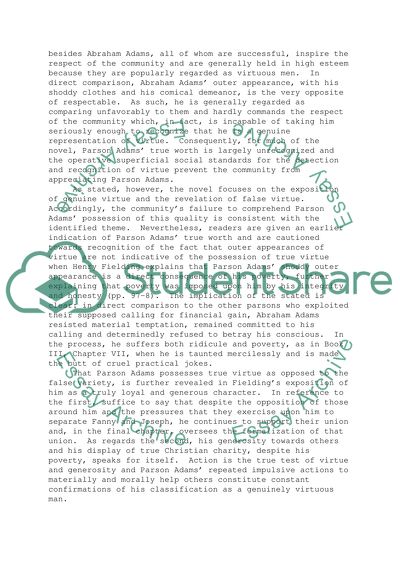Joseph Andrews by Henry Fielding Essay Example | Topics and Well Written Essays - 500 words. Retrieved from https://studentshare.org/literature/1510384-joseph-andrews-by-henry-fielding
Joseph Andrews by Henry Fielding Essay Example | Topics and Well Written Essays - 500 Words. https://studentshare.org/literature/1510384-joseph-andrews-by-henry-fielding.


